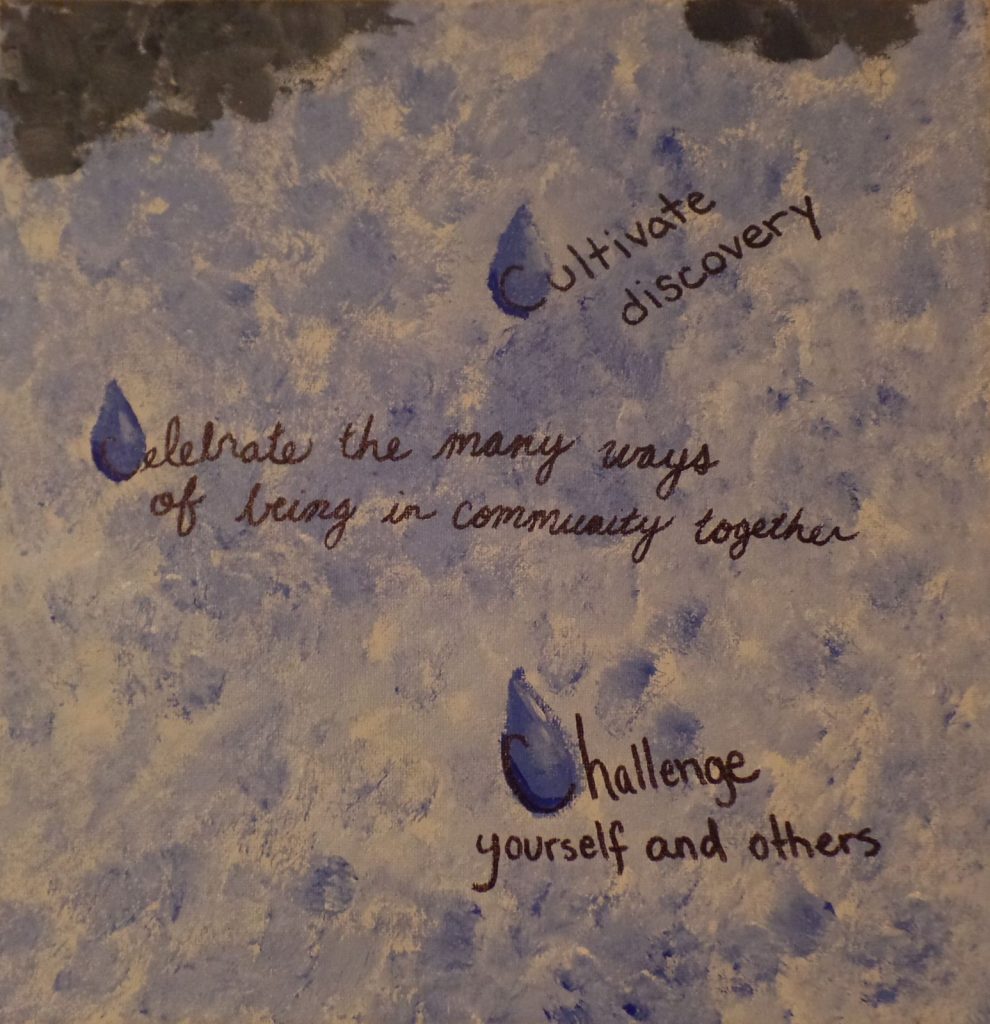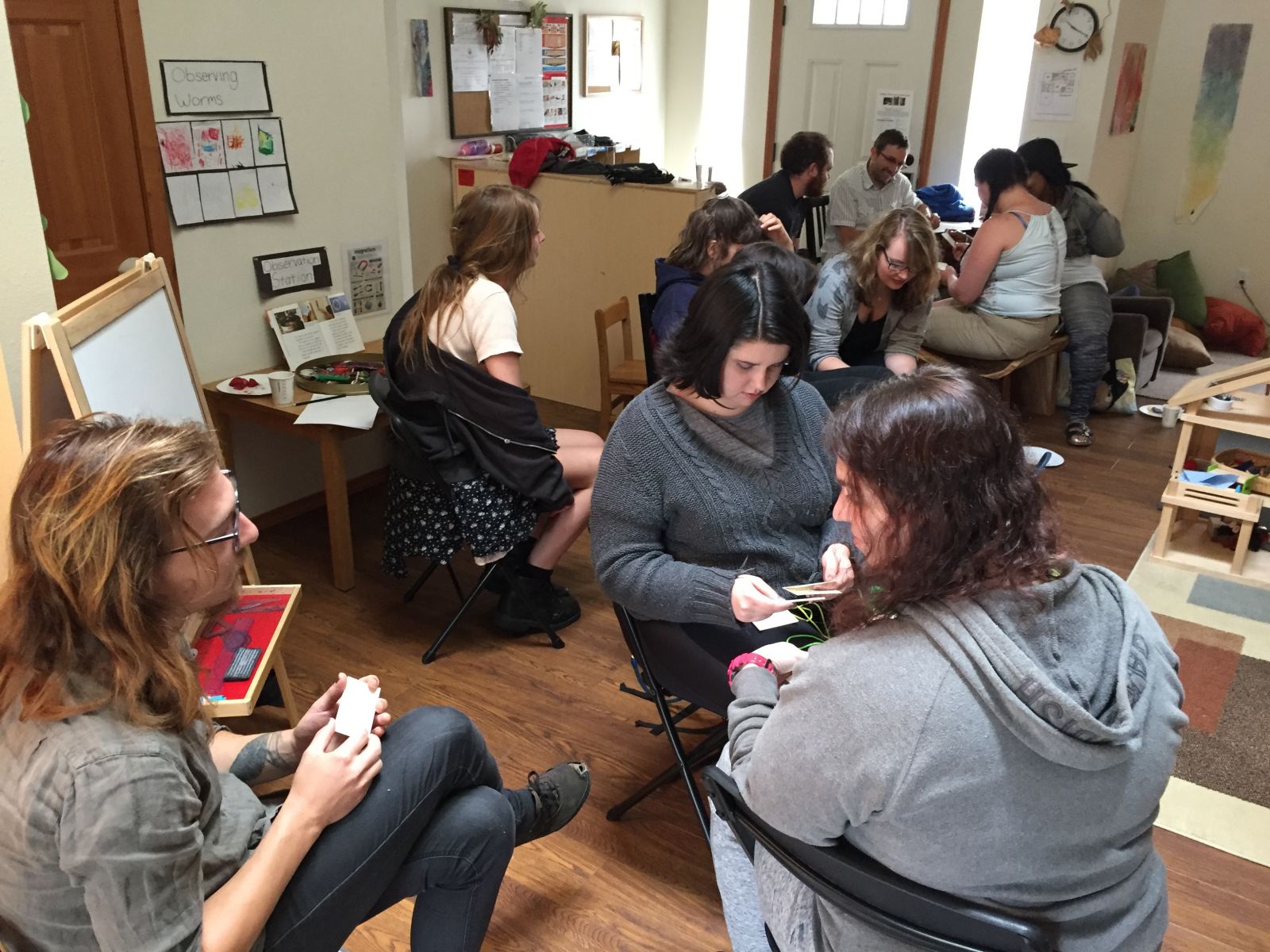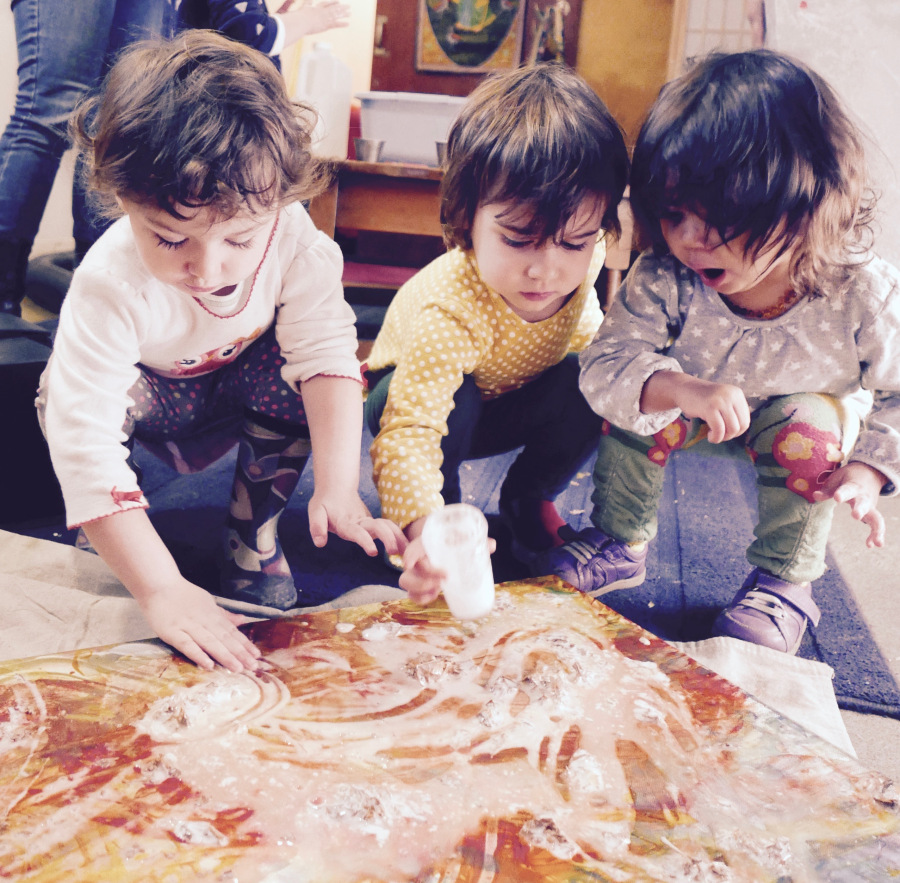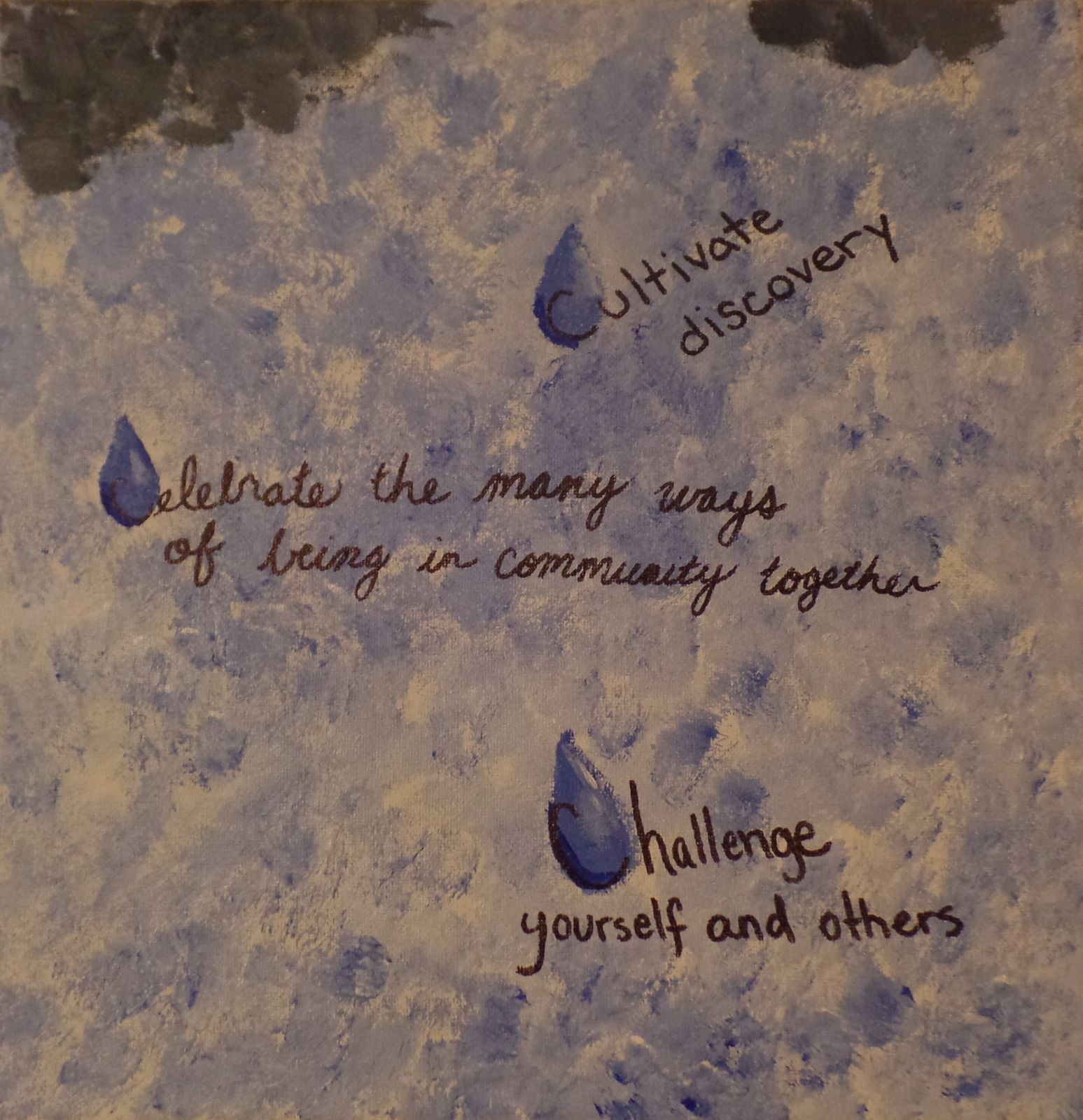
In a Pinch? Finding Wonder in the Differences of Understanding
In a Pinch?
Finding pit stops before the metaphorical rug gets too lumpy.
Relationships are important in every workplace. This is especially true for adults working with young children. Some people like to compare the co-teacher relationship with an arranged marriage. We don’t usually get to choose each other through a long courting process, but we work together in such close, interdependent circumstances as guardians of many children together. It gets complicated fast, and we rely on each other for so much. As you might imagine, how relationships function in this setting influences the entire atmosphere of the classroom, and even the school.
Growing up, I was pretty easy going and got along well with everyone. Part of this “getting along” was due to my conflict aversion. But as an adult, relationships got harder. Things didn’t always work out smoothly, and avoiding conflict didn’t always keep me out of it.
 Maybe you know the feeling: you’ve been working alongside someone, as a colleague, co-worker, partner, cohabitant, or other interdependent capacity. You rely on each other. Eventually, regardless of how well the relationship starts out, some tension shows up. They do something you don’t like, or you do something that annoys them and don’t realize it. Maybe it’s a tiny thing so no one brings it up, and it doesn’t get dealt with. Perhaps it wasn’t that big of a deal, right? But the tension lingers. It keeps happening, and those little things build up over time, gradually building discomfort, unease, sometimes even dread or resentment.
Maybe you know the feeling: you’ve been working alongside someone, as a colleague, co-worker, partner, cohabitant, or other interdependent capacity. You rely on each other. Eventually, regardless of how well the relationship starts out, some tension shows up. They do something you don’t like, or you do something that annoys them and don’t realize it. Maybe it’s a tiny thing so no one brings it up, and it doesn’t get dealt with. Perhaps it wasn’t that big of a deal, right? But the tension lingers. It keeps happening, and those little things build up over time, gradually building discomfort, unease, sometimes even dread or resentment.
When we think of bias and prejudice, what usually comes to mind is sexism, xenophobia, racism, ableism, or something of the like. But at the core, it comes down to a conflict of differences in understanding.
So here we are, stuck in tension due to a series of differences in understanding that have accrued. Now what?
Enter the Pinch Theory*
In the beginning of every relationship, you start by gathering data about the other person and about what you expect from each other. Dating, interviewing, first impressions, whatever it is, you’re collecting information, and so are they. Whether you know it or not, this is where you’re starting to set up and learn about expectations, boundaries, needs, and communication methods.
After the data/dating period, you might start to buy into the relationship, at which point, you can become productive together, agreeing (whether explicitly or implicitly) on expectations, and doing whatever it is you do with the information you have.
However, it’s virtually impossible to gather enough information in the beginning to avoid misunderstandings, miscommunications, and misalignments of expectations down the road.
Eventually, one of you is going to do something that rubs the other person the wrong way. A “pinch”; an expectation wasn’t met, a boundary was crossed, or a communication was misunderstood. You might not talk about it right away. “It was a little thing,” you tell yourself. Not worth getting worked up over. So you brush it under the rug.
But these little things keep happening. If you and/or the other person keep brushing it under the rug, eventually, there’s a “crunch”; the last straw. Now, of course, it’s not only about the little thing that happened just before the crunch. It’s about all of the little things that you didn’t talk about, the things that are making your rug lumpy. While the pinch was a bit of an annoyance, the crunch is more like an explosion. The rug is no longer stable to walk on.
Some common responses to this crunch are:
Premature Reconciliation – Pretend everything’s ok and go back to the way things were, like nothing happened. (It’s all good, right? RIGHT?!)
Quit Mad – Leave the workplace or relationship. This might look like avoidance, disrespectful language and behavior, or prejudicial comments. However, this comes with a metaphorical bag of rocks that follows you into your next relationships. For every unresolved pinch, you have added weight that doesn’t leave you until you deal with it.
Stalemate – Stay physically, but mentally you’re somewhere else. You become complacent and may stop caring much about what’s happening in the relationship. This can show up as negative body language, sarcasm, exaggerated politeness, or refusing to acknowledge others.
Reconciliation Under Duress – A neutral third party comes in to help sort out what’s going on. You go back to the beginning, the data stage, with this third party until things are worked out.
But none of these are sustainable, long term solutions. In fact, most of them scream “passive aggressive” and they can bring you right back into the cycle you just stumbled through. The rug is not really flat again, and you can’t pretend it is for long.
The Pinch Theory advises “pit stops”. This means regularly checking in with the person/people with whom you are interdependent. That pinch never becomes a lump if you never brush it under the rug.
There are many ways to deal with conflict head on, and they differ, depending on the relationship you’re in. But by confronting pinches more directly, you can keep expectations up to date and maintain productivity (not to mention, it feels nice to have less explosive friction in a relationship!).
I feel fortunate that where I work, at Hilltop Children’s Center, we already have some infrastructure to support this kind of rich relationship development, which has helped immensely in my team’s work of digging through those heavy bags of rocks. We have pit stops built in: we check in at our weekly meetings, making sure to take the time to unpack things that are bothering us (even the little things!) and work through it together, and every year we have time dependably built into our In-Service plans to re-evaluate and re-establish our team values. This year, hanging on our classroom wall, we even have a painting that we made together, showcasing our commonly agreed upon values. This serves as a visual reminder of our core expectations.
On top of the support Hilltop gives us, my co-educators and I have been talking transparently about the skills we’re working on and our individual strengths and weaknesses. We’re supporting each other and recognizing how we complement each other. For example: Nick knows that I am quick to jump to fixes, and he balances that by pushing back sometimes. I know that Nick, having been at Hilltop for over a decade, has been working on flexibility and making room for new Co-Educators, so I inherently challenge him in return. Sometimes we disagree and even argue about things which usually results in even better solutions than any one of us would have come up with on our own. We approach our potential lumps before they ever see the rug.
Your relationships will look different. It helps that we have spent time to get to know each other in the beginning, but part of the point is that getting to know each other is not just for the beginning of the relationship.
All of us are still growing and changing, which changes our expectations and the way we meet the expectations of our colleagues and other adults in our lives. Environments, teams, others’ expectations, and circumstances change, too. There’s always more work to do. Just like the anti-bias work we’re digging into as a faculty this year, it is hard work and change.
The trick in all this, to ease conflict into a positive, is to see pinches as opportunities to learn more about the other person and ourselves. Everyone comes into a relationship from somewhere. There are so many ways to view every situation, and no person can view the same circumstances in quite the same way.
“If what you say surprises me, I must have been assuming something else was true. If what you say disturbs me, I must believe something contrary to you. My shock at your position exposes my own position…These moments are great gifts. If I can see my beliefs and assumptions, I can decide whether I still value them.”
–Margaret J. Wheatley, Turning to One Another: Simple Conversations to Restore Hope to the Future
I challenge you to see conflicts as collisions of differing understandings, and above all, as opportunities to reevaluate and reshape your understanding. I urge you to wonder “Why?” when a conflict arises between you and another person. It starts with recognizing a pinch when it happens and committing to working through the discomfort to figure out what caused it in the first place.
How does all this relate to young children?
 Children learn from what you do around them. They pick up on your subtle cues, responses, and interactions. You can’t choose what they learn, but you can think about what they might be learning, and what you’re offering them. For example, what might your children be learning from the way you respond to conflict?
Children learn from what you do around them. They pick up on your subtle cues, responses, and interactions. You can’t choose what they learn, but you can think about what they might be learning, and what you’re offering them. For example, what might your children be learning from the way you respond to conflict?
As we do this work intentionally throughout this year, both our anti-bias focus and our relationship work (endlessly intertwined, if you ask me!), we keep in mind that there is no single prepackaged solution. There’s no concrete, magical way to respond to challenging situations.
What might the children be learning about us, themselves, and the world around them as they observe their educators interacting, disagreeing, and seeking resolution? How are we making this process visible (or not!) for them? What do we want the children to learn from our journey as a team continuously getting to know each other?
Young children get to face interdependent relationship building constantly, too. Here they are, dropped into a room full of other children with varying social emotional awareness and relationship proficiency, and we expect them to “make friends” with people who directly impact their day-to-day experiences. It’s on us as adults to offer children the tools to face conflict in a way that leads to empathy and comes from a place of compassion.
Let’s wonder together.
*The Pinch Theory is deeply inspired by the Pinch Crunch Model, John Scherer and Jack Sherwood’s adaptation of “A Model For Planned Renegotiation” by Jack Sherwood and Jack Gladwell, and is taught as a part of North Seattle College’s Early Childhood Education program.

Layla Rowen is an educator with 2- to 3-year-olds at Hilltop Children’s Center, where she has worked since 2016.
Learning in relationship is one of the core values Hilltop aims to bring to life. Through support and organizational integrity, Hilltop is able to support educators and develop structures that enhance reflection and uphold program values. Interested in exploring such models? Join us for a multi-day visit to Hilltop to see child-centered and reflective practice in action. Talk directly with program leaders and educators from Hilltop classrooms, witness real-life examples of successful long-term project work with young children and closely study and discuss effective structures for values-based Administrative Practices. For more info, email Mike at institute@hilltopcc.org or visit our website at https://hilltopcc.com/institute/inquiry-visit/
2 thoughts on “In a Pinch? Finding Wonder in the Differences of Understanding”
Comments are closed.

Thank you for sharing these thoughts and words, Layla. They were a great reminder to me as I establish many new relationships in my personal and professional life right now.
Miss you!
Sandra! It’s so nice to hear that these words resonated with you!
There will be so many new people throughout our lives. I’m glad that you’ve been one in mine. =)